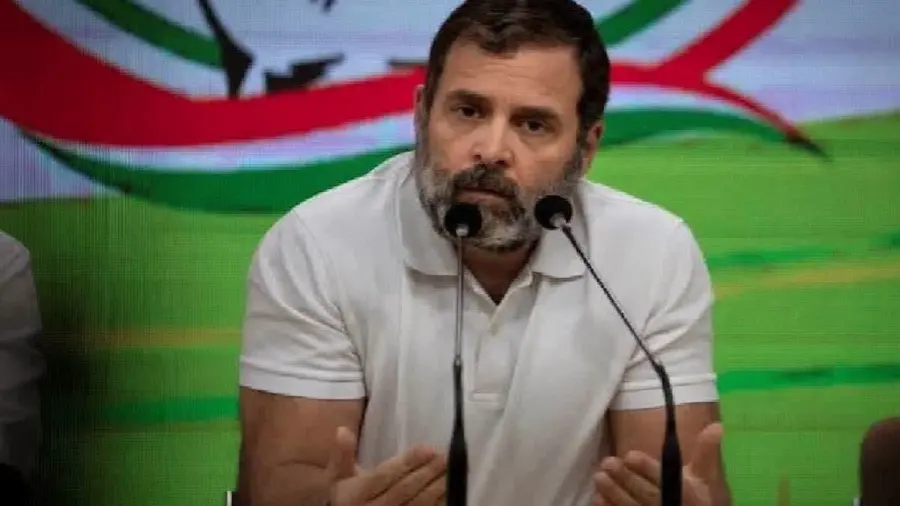
Rahul Gandhi accuses the ECI of rigging the 2024 Maharashtra elections, while the poll body strongly denies the claims
Election Integrity Debate – The 2024 Maharashtra Assembly elections have sparked a heated debate on electoral integrity, following Rahul Gandhi’s accusations against the Election Commission of India (ECI). The Congress leader alleged that the elections were manipulated through rigging the appointment panel, adding fake voters, and inflating voter turnout. In response, the ECI strongly refuted these claims, calling them “unsubstantiated” and “absurd”.
This controversy has ignited public discourse, with supporters demanding transparency while the ECI maintains that the elections were conducted fairly. As the debate unfolds, questions arise about India’s electoral process, voter credibility, and the role of political narratives in shaping public perception.
Rahul Gandhi’s Allegations: A Blueprint for Electoral Manipulation?
Rahul Gandhi, in an op-ed article, outlined what he called a “blueprint for rigging democracy”, alleging that the Maharashtra elections were manipulated in a step-by-step process. His claims include:
- Rigging the panel for appointing the Election Commission – Gandhi argued that the selection process for election officials was biased.
- Adding fake voters to the electoral roll -He alleged that bogus entries were made to inflate voter numbers.
- Inflating voter turnout – According to Gandhi, the reported turnout figures were artificially boosted.
- Targeted bogus voting -He claimed that fraudulent votes were strategically placed to favor the ruling party.
- Hiding evidence – Gandhi suggested that critical election data was concealed to prevent scrutiny.
These allegations have fueled social media debates, with many questioning whether India’s electoral system is truly free and fair.
ECI’s Strong Rebuttal: Defending Electoral Integrity
The Election Commission of India swiftly responded to Gandhi’s claims, dismissing them as “completely absurd”. The ECI emphasized that:
- The electoral process was transparent, with polling agents from all parties present.
- The voter rolls were scrutinized by over 100,000 Booth Level Agents (BLAs), including 27,099 from Congress itself.
- The allegations of inflated voter turnout were baseless, as the data was publicly available.
- The appointment of election officials followed constitutional guidelines, ensuring fair representation.
The ECI further warned that spreading misinformation undermines public trust in democratic institutions and demotivates election staff who work tirelessly to ensure fair elections.
Public Reaction: Social Media Divided
The controversy has led to polarized reactions on Twitter, Instagram, and political forums. While Congress supporters demand greater transparency, others argue that Gandhi’s claims are politically motivated.
Some users have called for:
- Publishing machine-readable voter rolls for greater accountability.
- Releasing CCTV footage from polling booths to verify election integrity.
- Independent audits of the electoral process.
Meanwhile, BJP leaders have dismissed Gandhi’s allegations as an attempt to justify Congress’s electoral defeat.
Conclusion: Election Integrity Debate
The debate over election integrity continues to shape India’s political landscape. While Rahul Gandhi’s allegations raise concerns about electoral transparency, the ECI’s strong rebuttal reinforces confidence in the democratic process.
Moving forward, ensuring public trust in elections will require greater transparency, independent audits, and open dialogue. Whether Gandhi’s claims hold merit or are politically driven, the controversy underscores the importance of safeguarding India’s electoral integrity.
Stay updated with the latest news on Rapido Updates. Keep yourself updated with The World, India News, Entertainment, Market, Gadgets, Sports, and many more.
1 thought on “Election Integrity Debate: Rahul Gandhi’s Rigging Allegations vs ECI’s Strong Denial”